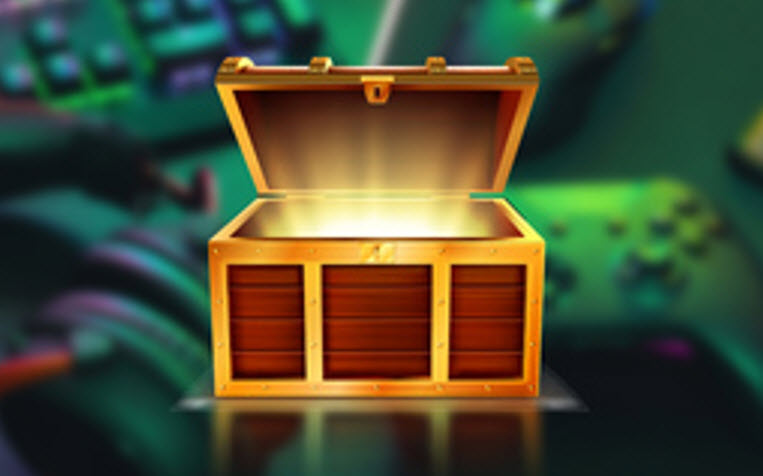Gaming or gambling? Lifting the lid on in-game loot boxes

The virtual treasure chests and other casino-like rewards inside your children’s games may pose risks you shouldn’t play down
13 Feb 2025
•
,
5 min. read

Historically, many video games followed a straightforward economic model: pay once, play forever. These days, however, purchasing a game is often just the beginning. At the same time, modern gaming has increasingly embraced free-to-play ecosystems, where players get access to the base game at no cost, but are constantly nudged to spend money on in-game items in the hope that these extras will speed up their progress, provide competitive advantages, or enhance their gaming experience.
Enter loot boxes, skin betting, and other microtransactions that have become a controversial feature of many video games. But while the lines between entertainment and gambling have become blurry, the consequences are coming into focus. Once dismissed as a niche concern, sealed mystery boxes and other chance-driven, casino-like rewards are now recognized as potential contributors to gambling addiction among children and teens, many of whom don’t even realize they’re gambling.
Meanwhile, the wheels of regulation turn rather slowly. Many parents, for their part, are also often caught off guard and struggle to keep their children and families out of harm’s way.
Tricks of the gaming trade
Loot boxes – not all dissimilar from lottery scratch cards or to digital chocolate eggs containing random plastic toys – are perhaps the most controversial type of in-game rewards. Major gaming franchises, such as Candy Crush, Fortnite, FIFA, League of Legends and Final Fantasy, have also relied on revenue from these “grab bags” and other microtransactions to offset development costs. Studies estimate that by the end of 2025, loot boxes will generate over US$20 billion in revenue.

For the uninitiated, here’s how loot boxes work:
- a player spends real money to buy a loot box, or receives it as a reward, without knowing what’s inside
- the content is randomized, making the purchase a gamble
- rare and highly desirable rewards are intentionally scarce, encouraging repeated spending
This is where the parallels to slot machines and roulette wheels become impossible to ignore. It’s little wonder, then, that this mix of suspense, reward, and intermittent reinforcement keeps players coming back, to the point of possibly encouraging addictive spending among especially young people. The problem is further exacerbated by the accessibility of mobile devices and the lack of age verification controls on many platforms.
Indeed, while casinos are subject to regulations and licensing requirements, many video games operate in a legal gray area. For young players, the risk of compulsive spending is particularly real. The consequences can be severe, including the development of gambling behaviors and significant financial losses, often unbeknownst to parents.
Third-party gambling sites and influencers: The state of play
Loot boxes aren’t just a problem inside games – they’ve spawned an entire secondary gambling market. Third-party websites allow players to trade or bet their in-game items, such as weapon skins for some highly popular games, for real money.
These sites often operate in a regulatory gray area and face little-to-no regulation. Many of them don’t actively stop minors from betting, all while the players who lose money often have no recourse.
The connection between gaming and gambling is often further strengthened by social media influencers who hold massive sway over young audiences. Some may funnel followers into gambling platforms, possibly earning commissions based on user losses – and sometimes without disclosing that they actually owned the platform.
Game over? Hardly
With the line between gaming and gambling blurrier than ever, regulators have taken notice and the gaming industry may face a reckoning in the future. For now, however, legislation and enforcement remain largely elusive, and gaming companies continue to finetune their engagement and monetization tactics.
Here’s a snapshot of legislative action undertaken by some countries vis-à-vis loot boxes and other in-game extras:
What can parents do?
The problem with loot boxes and other controversial in-game purchases isn’t going away anytime soon. What can you as a parent do to help mitigate the underlying risks?
- Talk to your children about gambling mechanics in games, since chances are high that they don’t realize they’re engaging in gambling-like behavior. They should understand the difference between earning rewards in a game and spending real money to buy random items.
- Keep an eye on what games your child is playing and whether they’re engaging with loot boxes or other microtransactions.
- Some platforms let you set spending limits and restrict or turn off in-game purchases. Use these features to prevent accidental or excessive spending on loot boxes or other microtransactions.
- Enable parental controls that can block access to certain games or in-app purchases and/or let you set spending limits or approve any purchases made.
- Consider monitoring all their online activity, including the social media influencers they follow.
- Set a positive example – take your eyes off your own screens and encourage offline hobbies to reduce your children’s screen time.
Loot boxes and gambling-like mechanics in video games are not just a passing fad, so be aware of the risks. For children, gaming should be an adventure and a learning experience, not a gamble that may put the well-being of their entire family at risk.
Why not get your children to watch ‘Hey Pug‘ on Safer Kids Online? Hey Pug is an animated series by ESET that teaches kids about online security and privacy in an engaging and entertaining way.
Related
I became a millionaire in my 20s but my sports…
Millions wagered, hundreds of thousands in debt and a pending divorce.Joe C, a native of Chicago, fell into the depths of addictive sports gambling at the age o
Strip executive retiring after 3 decades with gambling giant MGM…
A top executive who oversees multiple properties on the Strip, including one of Las Vegas Boulevard’s most recognizable and successful casino-hotels, is
Danish Government’s Success with Gambling Addiction
Gambling addiction is a growing concern worldwide, with many countries struggling to find effective ways to regulate the industry. Denmark, however, has e
UFC 313 Gambling Preview: Will Magomed Ankalaev end Alex Pereira’s…
Alex Pereira is back! On Saturday, Pereira puts his light heavyweight title on the line against Magomed Ankalaev in the main event of UFC 313. Before that, J













